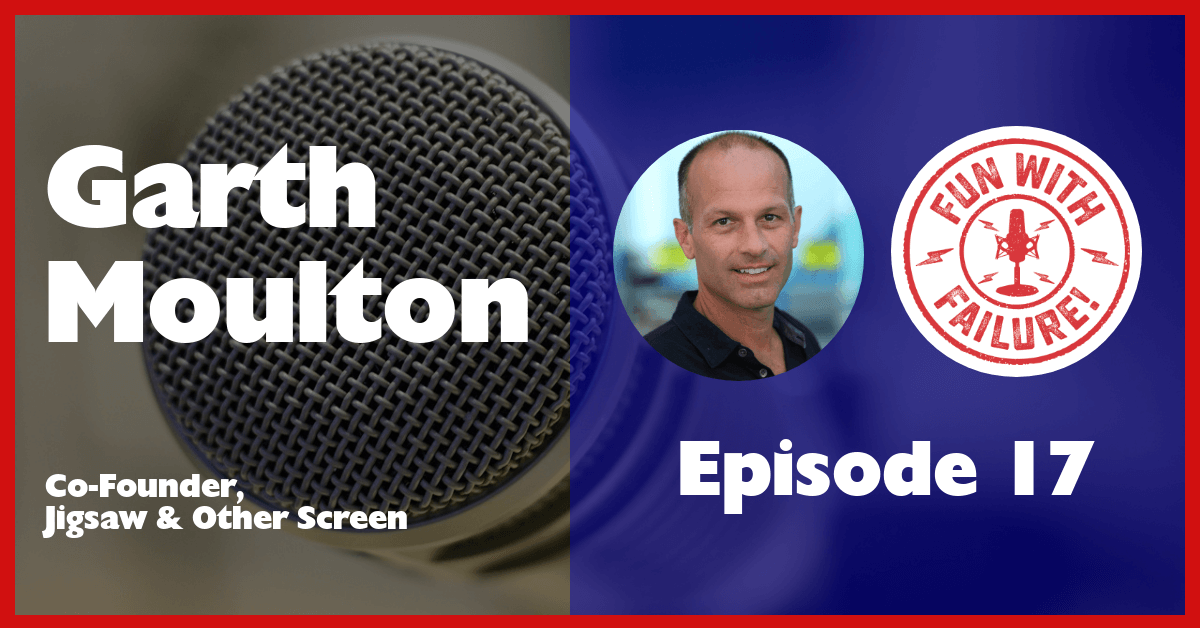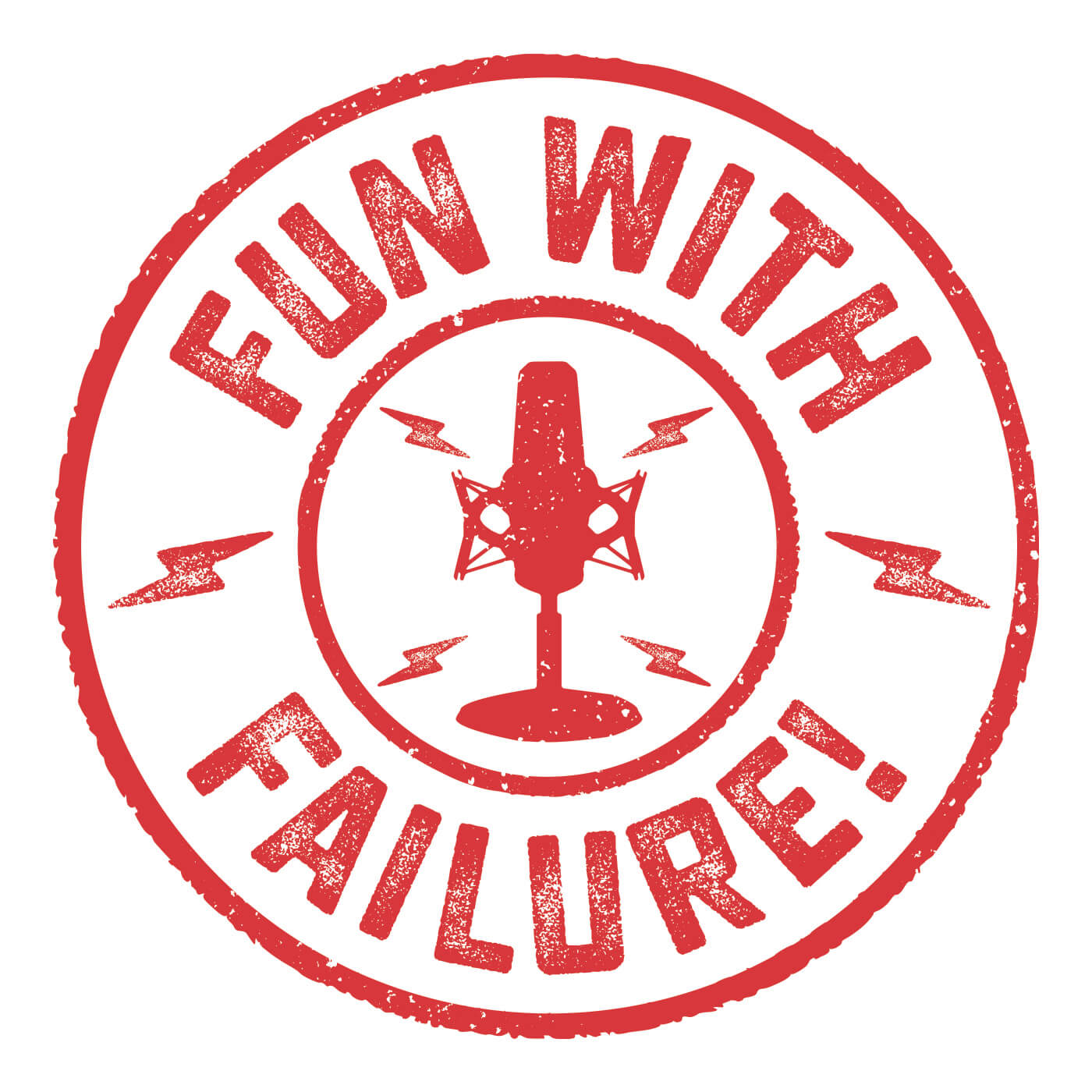
EP 17: Garth Moulton Sold One Company to Salesforce and Shut Down Another
Garth Moulton co-founded Jigsaw and later sold it to Salesforce about about $140 million. In this episode, he explains how it started it and why he felt “displaced” after it sold. He wasn’t planning to start a new company immediately after the sale, but in 2011, he co-founded a social TV/Second Screen company called OtherScreen. It originally showed great signs of success but failed to gain significant traction. Garth is candid about his success – and this particular failure. He talks about the market conditions that supported, and ultimately prevented, OtherScreen’s adoption. He shares valuable lessons and great stories about it all. OtherScreen closed in
November 2012. In 2013 and 2014, Garth ran all things customer related for CircleBack, a company that he’s invested in — and continues to advise. Today, he works for Pipl, Inc. – and is responsible for driving revenue through the channel and strategic brands.
In this episode, we discuss:
- Why he started Other Screen when he did – and with who he did
- Why Other Screen had a lot of potential – but ultimately failed
- The exact moment he knew Other Screen wouldn’t be successful
- What he learned when from the experience
- When he and his Other Screen Co-Founder gave investors their money back
- How he and his Jigsaw Co-Founder came up with the idea for the company
- Why he felt displaced after selling Jigsaw to Salesforce
- Why his least favorite type of pitch is when someone tries to “foie gras gullet” him
- How people should dress when they’re pitching
Quotes:
- “My definition of failure is striving for something you don’t want – or need.”
- “I’m afraid of wasting time. Of doing things that aren’t fulfilling; striving for things that I don’t really want. I’m just very cognizant of having a limited amount of time and wasting it. That is what I’m afraid of.”
- On the best part of the entrepreneurial scene in Charlotte – “the energy and the empathy for others in the environment… You don’t find that in Silicon Valley. You don’t find that in New York City. Nobody’s worried about the other people in the environment — which you still find here. I was surprised by that when I got here and I’m still surprised by.”
- On how the Charlotte start-up scene is changing: “The fact that you have a podcast that deals with failure is a pretty good representation. It used to be seen like, ‘Oh my God. What’s the worst thing you could do? Fail at a stat-up.’ Now? That’s just Step 1. Get out there and fail three, four, five times.”
- “The VC model is… we’re going to invest in ten companies, and we don’t care about nine of them. We want one of them to be big. So they want you to spend that money fast to give them some optics of whether you’re gonna be the unicorn, or you’re gonna be the thing that pays back their entire fund.”
- “Jigsaw was completely disruptive. You know, before that term became so hackneyed, it was the basic definition of something that provides more, something new, at a fraction of the cost. And that’s exactly what we had.”
HIs advice for pitching:
“The more I listen to pitches, the simpler my advice has become. The absolute most important thing you have to have when you’re pitching your company… you have to have different portions of the story.”
“You should prepare for the time period you have to pitch in — down to the minute.”
“Know your audience. Whenever you’re going to be talking to anybody, or you’re going to be communicating to another human being, you should know your audience.”
“If I’m evaluating a company, there’s three things: the idea, the market for it, and who is it. Who is it? Who you are is, by far, the most important. Then, the market, the potential market for it and your knowledge of it. And then way down at the bottom of it, is your actual idea.”
“Practice! Practice the words. You need to know what the strong parts of your presentation are — and how long they take to say.”
